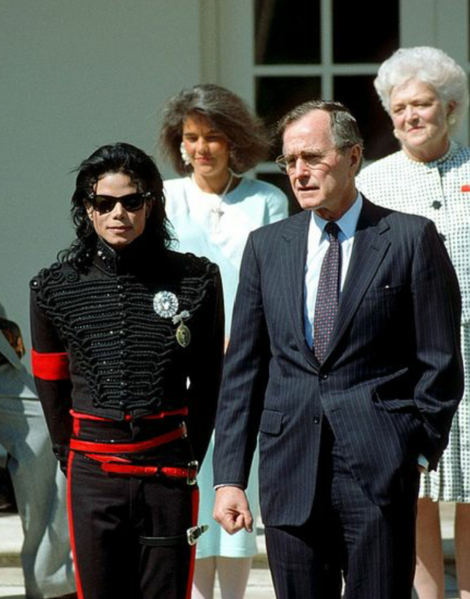Michael Jackson Accusers Claim Pop Star Possessed 'Sexually Provocative' Photos of Children

Michael Jackson's accusers, Wade Robson and James Safechuck, have once again made headlines with their stern legal response to the pop star's estate after facing criticism for their explosive allegations. In Touch Weekly recently reported that Robson and Safechuck alleged Jackson possessed "sexually provocative" photos of children he invited for "sleepovers" at his residence.
In newly obtained legal documents, Robson and Safechuck’s attorney, John Carpenter, pushed back against the estate’s request to cease their public criticisms of Jackson. Carpenter described the estate's motion as a "stunt" intended to draw attention and sway both the court and public opinion against the accusers.
The legal battle intensified in May 2024 when Jackson's estate filed a motion asking the court to prevent Carpenter from making negative statements about Jackson in the press. The estate's motion argued that Carpenter's public remarks were incendiary and could potentially bias the jury pool, undermining the fair administration of justice. "Mr. Carpenter's statements are not simple reports on the progress of the case or a factual recitation of events in court. Rather, he is making incendiary claims and accusations that have a substantial likelihood of materially prejudicing the jury pool in this case in favor of his clients and against Defendants," the motion stated.
Carpenter fired back, claiming the estate’s primary objective is to generate profit. In a pointed critique, he accused the estate of attempting to sanitize Jackson's legacy through projects like the upcoming biopic "Michael," which aims to present the late singer in a favorable light. "[The estate's] sole existence to live and exist is to make money," Carpenter asserted. "And so the movie is just one piece in their efforts to rehabilitate and rewrite the history of Michael Jackson and what he did to James, Wade, and other children."
According to Carpenter, these efforts to portray Jackson positively are a direct affront to the serious allegations made by Robson and Safechuck, which include claims of a sexual relationship with underage children, including the two accusers. Carpenter argued that the filmmakers and estate were effectively dismissing the harrowing accounts of abuse.
Robson and Safechuck's allegations date back to a 2013 lawsuit in which they accused Jackson of abusing them when they were just 7 and 10 years old, respectively. They claimed that the abuse began during Jackson's 1988 Bad Tour and continued for years. The lawsuit detailed how Jackson allegedly groomed them by asking them to spend more time with him, leading to repeated incidents of abuse.
The estate's recent efforts to curb public criticism come amid a backdrop of ongoing legal wrangling and public relations battles. The allegations against Jackson have cast a long shadow over his legacy, with fierce debates continuing about the veracity of the claims and Jackson's true character.
The accusers' latest legal maneuver highlights the intense emotions and high stakes involved in this protracted legal saga. As the case progresses, it remains to be seen how the court will handle the competing narratives and whether Carpenter's public statements will have a lasting impact on the proceedings.
Meanwhile, the upcoming biopic "Michael" promises to reignite discussions about Jackson's life and legacy, potentially bringing new scrutiny to the allegations and the estate’s handling of Jackson’s posthumous reputation. As the debate rages on, both sides appear resolute in their efforts to shape public perception and achieve their respective goals in court.














